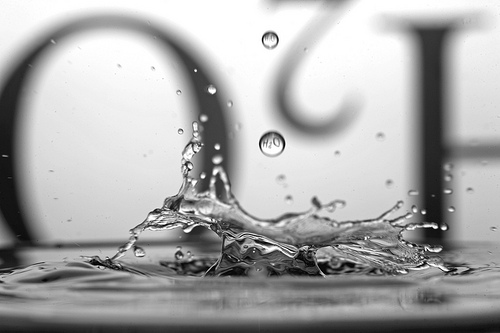by Joshua V. Gilbert
In beginning this blog post, I asked myself one question, “How important is water?”
 |
| {source: lazlo-photo} |
I get that it’s essential to our survival. I’ve been taught that since kindergarten. I saw 127 Hours. I know that James Franco’s biggest problem wasn’t his arm being stuck under a rock; it was trying to make a half bottle of water last for however many days 127 hours is. I know that in war, when supplies get cut off, it’s not the lack of guns or food that depletes an army; it’s the absence of potable water. I read The Hunger Games. I remember the advice to the tributes – “Forget the weapons. Find shelter and water.”
I understand that water is essential to the human body’s functioning. The question is, how much can I, or anyone, empathize with those who don’t have it? We can try. The first step is gaining perspective. Without perspective, empathy is impossible.
In an attempt to gain that perspective, I tried to imagine that drinkable water was unattainable to me. Just for one day. I tried to construct a fictional world where I could not just turn on the tap and have fresh, clean water flow into my glass. But I couldn’t. Life without water is just unthinkable for someone living in the in the 21st century United States. So, let’s look at this another way.
Imagine that you have plenty of water, but this is how your day unfolds…
1. You wake up and your cell phone is dead. You don’t have a land line anymore. Forget trying to find a pay phone to make a call (the internet is what you really want anyway, right?). You rush to the internet café, just to make sure you haven’t missed the end-of-the world, but the world is still whirling.
2. On your way to the office, your car dies because it’s out of oil. You hoof it a half mile to the nearest gas station, buy some oil, walk back and proceed to work.
3. You arrive to find that the internet is down. No one can even get online on their cell phones. The landlines aren’t working. In the conference room, your co-workers sit staring at each other, having no idea what to do.
4. After a totally unproductive day, you get home to find there is a black-out. Your family has nothing to eat but cold sandwiches. There is no microwave, no television, no internet games, no Facebook. Your wife is “unhappy” because the blackout occurred half way through the laundry cycle. The clothes had to be rinsed by hand and hang dried, all by the glow of a flashlight. Luckily you still have water, so your children can brush their teeth before bed, but a cold bath was not going to be on their agenda.
Sounds pretty horrible, right? I’d venture to guess that if any of us experienced a day like this, we’d tell all of our friends and loved ones that our “bad luck quota” for the year was expended in just one day. We’d post our tale on Facebook and Twitter. No one would believe it. But think about it: Is it any different from the daily life of a woman who must walk miles to find drinking water?
Imagine if every single day of your life you had to search for not even a basic human need but something you rely on to make your life easier and more comfortable like internet, electricity and motor oil? We could technically survive without them. Water on the other hand, is what sustains life. Think of it as an SAT question…
WATER is to THE HUMAN BODY as…
CELL PHONES are to OUR ABILITY TO COMMUNICATE
OIL is to a CAR
INTERNET/PHONES are to a BUSINESS
ELECTRICITY is to a HOME
If you were given advanced warning that your day would unravel as outlined above, and you could pay to make sure it did not, what would that be worth to you? $20? $50? $100?
We’re talking about one day. For the people of Niger West Africa this struggle is their daily life. And it doesn’t have to be.
 |


